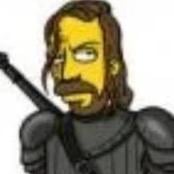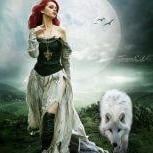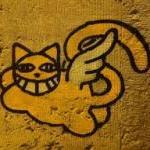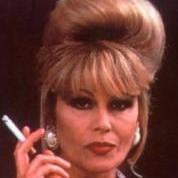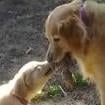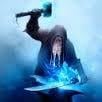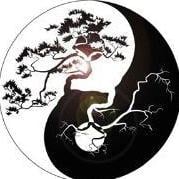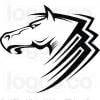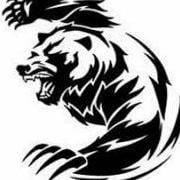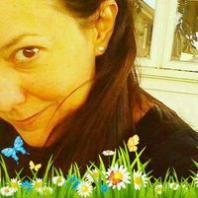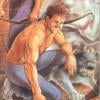-
Posts
914 -
Joined
-
Last visited
About Evolett
- Birthday January 25
Contact Methods
-
Website URL
bluewinterroses.com
Profile Information
-
Gender
Female
-
Location
Germany
-
Interests
Magic in aSoIaF
Recent Profile Visitors
5,263 profile views
Evolett's Achievements

Council Member (8/8)
-
 Craving Peaches reacted to a post in a topic:
The second head of Trios.
Craving Peaches reacted to a post in a topic:
The second head of Trios.
-
 Northern Sword reacted to a post in a topic:
The second head of Trios.
Northern Sword reacted to a post in a topic:
The second head of Trios.
-
Love your breakdown of the name Jeyne. I would add two more to the list: two of Ramsay's girls - Red Jeyne and Grey Jeyne. We know Ramsay hunts and kills girls, naming his bitches after those who "give him good sport." Their origins are unknown to us, they could have been peasant girls or maybe even daughters of lesser known houses but they must have been Northern girls. What's certain is they fit the pattern of suffering very tragic circumstances. Like the Jeynes, GRRM attaches themes and symbolism to certain first names (or name groups). The characters may or may not be apparently related. I've noticed that some Quentyn characters are connected to fire and stand opposed to Targaryens for instance: Quentyn Ball - known as "Fireball" - coat-of-arms was a fireball blazing red and yellow across a night black field. - his desire to join the kingsguard was rejected, prompting him to support Daemon Blackfyre. Quentyn Martell - Died a fiery death, became a "fireball" when blasted by Rhaegal - Rejected by Daenerys resulting in his family most likely going over to fAegon/Blackfyre. My favourite is the Bael group of names. This includes those named Baelor, Baelon, Balon, Baelish, as well as those not in the name group but exhibiting characteristics of the name group. Rhaegar is an example of the latter, also Mance as Abel (anagramm of Bael). The main Bael associations are: usually a king or prince (if Targaryen, then Prince of Dragonstone) roses / flowers Abduction/confinement of a maiden songs/singing slain by kin recognized warrior / great fighter / tourney winner Our Baels do not always show all characteristics and some are echoed rather than actual. Bael the Bard is the lead figure to whom every point applies. Rhaegar mimics this and was even said by men to be "Baelor the Blessed born again." He is killed by his 2.nd cousin Robert. Mance as Abel ticks almost everything. He is missing the flowers but there is that allusion of being "slain by kin" when Jon (his Black Brother) thinks he's putting Mance out of his misery during the burning of Rattleshirt. King Baelor the Blessed wore a crown of flowers and confined his sisters to the Maidenvault. Echo of kinslaying - some believe he was poisoned by Viserys, his Hand and uncle. Petyr Baelish - rescues (abducts) Sansa and keeps her confined at the Eyrie. Sigil is a mockingbird - the mockingbird imitates the cries and songs of other birds. Rose to high office in record time. Offered Sansa fruit rather than flowers but as a child, played at being the Prince of Dragonflies and Jenny "with flowers in her hair" - Catelyn wore the flowers. Is now Lord of Harrenhal where the important "Bael moment" took place between Rhaegar and Lyanna. Baelor Breakspear, Prince of Dragonstone, tourney winner where he earned his name "'Breakspear;" his deeds at the Battle of the Redgrass Field inspired a song. Mistakenly slain at the tourney of Ashford Meadow by his brother Maekar. Balon Greyjoy - crowns himself king, great reaver/warrior in his youth, captured women as salt wives, slain by his brother Euron. In many of these cases, the male line of these Baels has difficulty surviving, if at all. Rhaegar dies and his two children by Elia are slaughtered. Jon is a member of the NW, sworn to take no wife and have no children. Baelor the Blessed was bound to the Faith and had no children (officially). Baelor Breakspear's sons died during the Great Spring Sickness. Balon Greyjoy's male line is in danger of petering out (unless the Captain's daughter has borne Theon a son). Jon sends Mance's baby away with Gilly because of the threat of the child being sacrificed by Melisandre. However, in the Targaryen family tree, prior to those mentioned above, a line of "Baelon" made it past the post. Prince Baelon Targaryen, also known as the Spring Prince, for the season of his birth, fourth born child of King Jaehaerys I Targaryen and Queen Alysanne Targaryen. He married his sister Alyssa and had three sons with her - Viserys I, Daemon and Aegon (died.) So his line survived through Rhaenyra. So how are all accounts and deeds of all these "Baels" relevant to the narrative? I think the hints we get point to the final Bael character being the Last Hero, responsible for the return of Spring. I see Baelor Breakspear as a parallel to the last hero and his broken sword. Note also that Spring is mentioned in some form or other in connection with some of these characters. There's Baelon the Spring Prince as a massive clue, then Baelor Breakspear's son's who die during the Great Spring Sickness, preventing their line from continuing. Lastly, the tourney of Harrenhal with it's parallel to the tale of Bael the Bard / song of the winter rose took place during the Year of the False Spring. Speaking of roses and flowers - they are a sure sign of winter's end. Flowers bloom in spring. It's also almost as though some force has sought to prevent the birth of such a "spring prince" until now. Each "Bael" tells some portion of the tale. It's up to us to unravel. I think the Faith of the Seven also plays a role in this, though I'm not quite sure what it is yet. There's Baelor the Blessed as well as Baelor Blacktyde, one of the very few Ironborn converts to the Faith, murdered by Euron Greyjoy.
-
 Evolett reacted to a post in a topic:
First Names as Clues
Evolett reacted to a post in a topic:
First Names as Clues
-
 Evolett reacted to a post in a topic:
First Names as Clues
Evolett reacted to a post in a topic:
First Names as Clues
-
 House Cambodia reacted to a post in a topic:
Etymology and language findings
House Cambodia reacted to a post in a topic:
Etymology and language findings
-
I can't believe I only just hit upon this possible link in symbolism between Varys and Patchface: Patchface famously survives three days at sea, mirroring Varys' words here. Additionally, Patchface's mutterings to Davos mirror Varys' "the big fish eat the little fish:" Both keep on paddling!
-
I'm inclined to link this to Bran who regularly climbed up to the eyrie atop the First Keep before his fall: This is just before he discovers the twincest, right before the fall that took him down the path of a warg and greenseer (spiritual/visionary). All the adjectives apply to him including the aerial - which we can interpret as in "flying". And we note it's the crows he intended visiting, only to be visited by one in his dreams thereafter. As Lord of the Eyrie, Sweetrobin has this symbolism too, though we have not seen it as clearly. He lives atop the Eyrie, is nicknamed after a bird, hears a dead singer singing and wants to see people "fly." Orell's spiritual habitation of his eagle in order to see at a distance (vision) also fits the bill. I wonder if this symbolism also applies to Aerys and Aerea? Aerys II wanted to turn into a dragon and thus fly. Readers speculate that was also subject to dream visitations. Dragons essentially also roost at eyries (defined as nests or as high inaccessible places) - see Rhaegal and Viserion roosting at the top pyramids in Meereen.
-
 Evolett reacted to a post in a topic:
What actually started the original Long Night?
Evolett reacted to a post in a topic:
What actually started the original Long Night?
-
 KingoftheRiversandtheHills reacted to a post in a topic:
Is Benjen Stark a deserter?
KingoftheRiversandtheHills reacted to a post in a topic:
Is Benjen Stark a deserter?
-
 KingoftheRiversandtheHills reacted to a post in a topic:
Is Benjen Stark a deserter?
KingoftheRiversandtheHills reacted to a post in a topic:
Is Benjen Stark a deserter?
-
 Kal-L reacted to a post in a topic:
Darkstar & the wormy apple
Kal-L reacted to a post in a topic:
Darkstar & the wormy apple
-
 Nisachar reacted to a post in a topic:
Darkstar & the wormy apple
Nisachar reacted to a post in a topic:
Darkstar & the wormy apple
-
I've more or less exhausted my thoughts on that prologue chapter in other threads but will have a stab at this new puzzle. From a logical point of view, associating Arthur Dayne and Gerold Hightower with a wormy apple / Darkstar suggests these two kingsguards were not as noble, chivalrous etc. as they are made out to be. Darkstar sticks out because of his attempt on Myrcella's life, a child. So if there is a connection to the Tower of Joy, perhaps this is it - the attempted / intended murder of a child. I've long puzzled over something Ned said to Robert: Aerys is responsible for murdering a great many people but did he also specifically target children? Not that we know of, though Ned's statement has me wondering if Aerys secretly attempted to wake dragons from stone, thereby sacrificing babies or children for this purpose. Back to the Tower of Joy. Someone on this forum (sorry can't remember who it was) theorized that Jon Snow was meant to be sacrificed in a waking dragons from stone ceremony (parallel to Rhaego), hence the need for Ned's contigent to fight the kingsguard for access to Lyanna and her child. It's not something widely discussed in the fandom but not impossible. Of note: It was Gerold Hightower who reminded Jamie that he "swore a vow to guard the king, not to judge him" All stood by as the king had atrocious acts carried out - even the "most honourable" kingsguards. So at the very least, comparing A. Dayne and G. Hightower to Darkstar and wormy apples suggests we should examine them in a different light. If the intention to kill a child or defending the child's future use as a sacrifice applies to those two honourable men, then Jamie's statement, "That was the White Bull, loyal to the end and a better man than me, all agree," is laden with meaning, for Jamie did attempt to kill a child, Bran.
-
 Sandy Clegg reacted to a post in a topic:
Wow, I never noticed that. Vol. 19
Sandy Clegg reacted to a post in a topic:
Wow, I never noticed that. Vol. 19
-
Nice! I spotted something I hadn't noticed the other day as well: “The Horned Lord once said that sorcery is a sword without a hilt. There is no safe way to grasp it.” (ASOS, Jon X) And here we see Arya using "a sword without a hilt" while practicing her swordplay in the trees in the godswood at Harrenhal before Jaqen arrives to offer her 3 deaths: Her blade was much too light and had no proper grip, but she liked the sharp jagged splintery end. (ACOK, Arya IX).
-
 Sandy Clegg reacted to a post in a topic:
The Quentyn Conundrum
Sandy Clegg reacted to a post in a topic:
The Quentyn Conundrum
-
 Aldarion reacted to a post in a topic:
The Silver Queen and the Weirwolves
Aldarion reacted to a post in a topic:
The Silver Queen and the Weirwolves
-
Quentyn's demise aside, "playing roles" here is a veiled nod at the fact that all three did "play a role," that of Brazen Beasts. This has symbolic value in the larger scheme of things, methinks. The Brazen Beasts wear beast helms to protect their identity, usually changing them daily. The basically engage in "mummery" by dressing / disguising themselves in this fashion. The Shavepates amongst them (half are Shavepates, the other half Freedmen) relinquished their locks to show their support for Daenerys' new order. This parallels the mummers who shave their heads to give the wigs they don a good fit. In the HotU, Arya learns there are three methods of disguise - mummery of the sort actors and Varys employ, glamouring and wearing a face. But there's a fourth way, that of the skinchanger. Here the person is disguised in the form of an animal. That's what the Brazen Beasts remind me of - skinchangers like Varamyr who are capable of taking multiple animals. Interesting also are the echoes of the Hound, famous for his snarling hound helm. Of note - the failed password was "dog." And like our Hound, Quentyn got himself badly burned. Similarly, the helms of the Beasts change owners regularly and Sandor's helm has found its way onto the heads of two other people so far. So what does this mean? On a symbolic level, I think Dany's chapters in Slaver's Bay, especially her Meereen chapters, inform us about the fight against the Others. The mysterious Harpy represents the Great (M)Other, the sons of the Harpy who strike at night correspond to the white walkers, while the slaves stand in for the wights. Dany has made progress freeing slaves but the sons of the harpy and the harpy itself are hard nuts to crack. As Brazen Beasts, the Shavepates in particular play an important role in keeping the peace, patrolling the streets and hunting down sons of the harpy where possible. They hightlight the importance of people with skinchanging ability to the fight against the Others. Quentyn and his cronies had stealing a dragon in mind, but playing the role of brazen beasts, released the imprisoned dragons instead, freeing them up for the defence of Meereen (fight against the Others).
-
 Evolett reacted to a post in a topic:
First Names as Clues
Evolett reacted to a post in a topic:
First Names as Clues
-
 Evolett reacted to a post in a topic:
Is Benjen Stark a deserter?
Evolett reacted to a post in a topic:
Is Benjen Stark a deserter?
-
Great connection . Those eggs did remind me of something, especially the raven dribbling egg yolk but I couldn't place it. Sounds very 3-eyed-crow.
-
 Evolett reacted to a post in a topic:
Bloodraven, Bran, and the Old Gods
Evolett reacted to a post in a topic:
Bloodraven, Bran, and the Old Gods
-
I've also thought of Trios as a reference to "the dragon has three heads," perhaps to the riddle of the Sphinx - three body parts that are reassembled to a whole, though I'm not sure how the dwarf's missing head would fit into that idea unless the "Sphinx" receives a brand new head of it's own. This also follows the idea of transformation.
-
Yes it's possible the recruiter left a positive impression but this is not stated anywhere in Meera's KotLT story. Here's the passage mentioning the black brother who spoke: Regarding a possible succession crisis / lack of heirs, do you mean Jon, the officially illegitimate son here? We don't get Ned's feelings on the matter but though he prayed for Robb and Jon to grow up as brothers, there's no indication he regarded Jon as a spare. I think that so long as Robert lived, he was at a loss when it came to deciding Jon's future. Regardless, even if it was Benjen's own choice to join the Watch, he at that age would have required Ned's go ahead - we see this with Jon: The issue of two few heirs still stands for me, but I've already put forward my arguments above. I think there were more pressing reasons that led to Benjen having to join the Watch, whether he wanted to or not. That it wasn't his choice is also suggested by the way he calls Jon "son" and his lecture on what taking the oath would cost him. Most of this revolved around not having a family, not knowing a woman etc. It seems to me he has certain regrets there, wishing he could have lived a normal life with a family of his own. It's possible there are parallels between Benjen and Bloodraven in this regard. The NW never found out what became of their LC Rivers. We have no information on whether he joined the CotF willingly or was captured, forced or convinced to "wed the tree" and sworn to secrecy thereafter. The circumstances leading up to his disappearance (leaving a trail up to a certain point / brothers killed), do suggest an attack on the group took place. Aside from death, capture is thus a very likely option. On the other hand, if actual desertion is an alternative, this would have been the perfect opportunity to abscond without even arousing suspicion. Jon's thoughts on what Ned might have done had Benjen been the deserter instead of Gared and the utterings of the raven during Mormont's lecture on desertion could be clues in this direction. But for all we know, Bran's outburst, "The children will help him," he blurted, "the children of the forest!" as posted by @Mithras above is the end to all speculation
-
Well, originally, Benjen and his troupe were sent out by the LC to look for Waymar Royce so that's not an assumption. It's also stated that Benjen knew the haunted forest better than anyone in the Watch, suggesting also that he was well acquainted with the terrain North of the Wall in general. Mormont had every confindence in Benjen, he could be relied upon: For him to "go rogue" on some kind of private mission seems atypical. Additionally, some in the Watch had already suspected the return of the Others: So, regarding the dragonglass or any activity related to gathering information about the Others, why would Benjen have to go about this business without telling his LC about it? I think there are 3 possibilities: - dead - captured with no way of contacting the outside world - deserted
-
Transformation. Devours > Transforms > Rebirths As illustrated here: The old man is "devoured," transformed into three parts and reassembled, emerging changed, without his head. Maybe it has to do with the journey of a greenseer as @Wizz-The-Smith suggests. Another thought: could be a clue to the process by which the undead are revived? The souls of the dying are consumed, then transformed, and they are "reborn" witless, mindless, (symbolized by the old man's missing head), no longer in control of their actions, but controlled / absolutely obiedient to another, like the wights but thinking also of Gregor/Robert Strong here.
-
I doubt this for two reasons: a. Would Benjen really have needed a motivational speech by a brother of the NW at Harrenhal to convince him to join the Order? The Starks are friends to the Watch and have dealings with them, probably like no other House. Brothers come to Winterfell occasionally, deserters are beheaded on site with young Stark lads deemed old enough present to witness the act. The kids grow up knowing the Order's purpose and hear Old Nan's tales about past events as well. Benjen must have been reasonably well informed. I don't see him being moved to join because of a plea heard at Harrenhal. b. The family had just lost it's head and heir apparent, leaving only Ned and Benjen to continue the line. Yes, Ned got married in Brandon's place but considering the real problem of failed pregnancies and losing children during early childhood, it would have been prudent to keep Benjen as a "spare" just in case. Additionally, the Lord is required to call his banners and go to war on behalf of the king and the Starks are obliged to join the Watch against kings beyond the Wall who prove troublesome. All this increases the risk of an early demise and one cannot know when these events might take place. Why allow Benjen to join the Watch under these circumstances? Ned opted to send Benjen to the Watch out of necessity, to keep him safe, imo, because he probably knew too much of what transpired at Harrenhal and may even have been involved in some way. According to Meera's story, he did offer to find some armour and a horse for the little crannogman. Perhaps he even painted the shield, and he must have been aware of the identity of the KotlT. and This is all very vague. Benjen has been missing for a couple of years. If he decided to go on some kind of private mission for the Watch, surely he would have made an effort to contact CB, show some sign of life by now? He must know that the LC would send men out looking for him and how that would unnecessarily put his brothers at great risk - he himself was out looking for the missing Waymar. On the subject of dragonglass. Gathering dragonglass seems to be a domain of the CotF, up North at least. We know they gifted dragonglass to the Watch yearly in times past. Dragonglass is of volcanic origin and occurs in the vicinity of volcanos. Is there a volcano up North that Benjen could access to mine dragonglass? Does he have the equipment for it? Where the CotF get theirs from has not been revealed but we do know that Leaf roamed the 7K for years - enough time to visit locations, even Dragonstone, to acquire it. The black cloak is also always a point of focus but who says it's Benjen's cloak? It could have been taken off any fallen brother or may even have once belonged to Bloodraven. Where did the horn come from? It's far more likely the cache of dragonglass was placed there by the CotF and that they or BR guided Ghost to the location. Again, if Benjen had gone through the trouble of procuring all these items and burying them at a secret location, why not include a message for the LC and his brothers? It was well hidden afterall. It is noteworthy that he first tells Jon the Watch could use a man like him and then does his best to disuade him after Jon eagerly jumps at the idea. Rather than reverse psychology, Benjen may have been expressing his feelings, his regrets, his lost chance at a regular life. Benjen was probably Jon's age when he joined up. When he speaks of what it will cost Jon, he's speaking from experience and it seems heartfelt. Note how he calls Jon "son." It would not surprise me if he deep down he wishes he could have lived a different life, regardless of whether he opted to join the Watch himself or was sent by Ned on account of circumstances. He would feel even more so if the latter were the case - a choice he perhaps never would have made himself. So, no one has commented on the 4 points I make in the OP yet. As stated above, those points were not part of the Video, rather a result of my digging through the text. Could these clues be hinting at a desertion on Benjen's part?
-
The other day I came across an old video by the Order of the Green Hand positing that Benjen Stark who has been missing since the beginning of aGoT most likely deserted his post. They propose Ned sent Benjen to the NW on account of his involvement and or knowledge of the events that took place at Harrenhall (this isn’t a new thought). They cite some evidence suggesting this was very much against Benjen’s wishes and theorize that he not only resented Ned for relegating him to a hard life at the Wall, but also manipulated Jon into joining the NW to spite Ned. Check out the link below for the whole theory. The case made kind of resonated with some thoughts I’ve had about Benjen, having observed many of the things they cite but I hadn’t developed any conclusive thoughts on the matter and desertion never crossed my mind. Maybe I’ve missed something, but I have not seen this possibility discussed in the fandom either. Apart from the above, no further evidence for his alleged desertion is offered in the post but I find the idea quite intriguing. I’ve gone over the few mentions of him that we have and have identified possible subtle clues that may point in the direction of a potential desertion on his part. What follows is not included in the video. It's my investigation of the subject. What might Lord Eddard have done? A lot goes through Jon’s mind when he makes the decision to quit the NW to join Robb’s campaign, including wondering how Robb would receive him. He then thinks of Ned’s execution of Gared in connection with Benjen: GRRM often hides things in plain sight. Is this an example? 2. Ben Jen The next potential hint comes from Mormont’s raven when Mormont lectures Jon after his desertion attempt is thwarted by his brothers, and he is returned to the Wall: Mormont delivers quite a long speech, asking the above question regarding the missing Benjen in between. Note the raven’s reaction to the question and how Benjen is emphasized 3 times by the Ben Jen notation. What is George getting at? Seeing as the theme is Jon’s desertion and we even get a mention of the deserter Mance Rayder just before the question is asked, I do wonder whether Mormont’s raven is associating Benjen with desertion and is telling us that he did in fact desert. 3. Broken Eggs While Mormont is speaking, the raven is busy helping itself to an egg: The raven was pecking at an egg, breaking the shell. Pushing his beak through the hole, he pulled out morsels of white and yoke. Mormont is also having eggs for breakfast, crushing his in his fist: Frowning, Mormont took his last egg and squeezed it in his fist until the shell crunched. Our attention is drawn to the egg again when the raven makes its Ben Jen comments. So what’s up with the eggs? A search on the symbolism of broken eggs yielded a variety of meanings including: Breaking free / freedom (breaking out of the shell) Broken promises Unexpected end Setback, failure, fragility, vulnerability The first two do catch the eye… 4. Theon and Benjen Lastly, another potential subtle hint: At Robert’s welcoming feast, the guests entering the feast hall are paired with members of the Stark family. Benjen is paired with Theon, they are the last to enter the hall. Are both turncloaks? This pairing may also indicate a sinister fate, similar to Theon’s. So. What do you think? If he did indeed desert, where could he have gone? Link to Video: Did Benjen Trick Jon? (Order of the Green Hand, Youtube)
-
Good read with some interesting ideas, though I'm not convinced we'll be seeing any more stone / calcified dragons coming to life, but who knows? That said, it wouldn't surprise me if there is indeed something unholy locked into the black stone labyrinthine base of the Hightower. Euron aiming to attack Oldtown, his capture of the warlocks and his drinking copious amounts of "shade of the evening" puts me in mind of the House of the Undying and I think these two locations have certain parallels. Both buildings are very ancient and stand isolated from their surroundings - the HotU somewhere in Qarth and the Hightower on its island. Damy's experience of walking through the HotU is akin to traversing a maze or labyrinth and at the end of her journey she finds the Undying. Does the base of the Hightower also harbour some malevolent Undying soul that has been imprisoned there since Battle Isle acquired its name. Bran the Builder is said to have built the Hightower as well and even though this was presumably long after the construction of the Hightower base, we know his building methods included warding. Did he ward the Hightower as well as an extra fortification? I really like the Iron Maiden/Leyton connection you've dug up here as it does suggest some kind of partnership between Euron and Leyton. So far, I've associated Euron's silent Iron Maiden with the medeival torture device of the same name. It is a human-sized casket made of iron and lined with internal spikes to impale the victim within the casket. Very fitting for a man like Euron. If this figure at the prow of the Silence is also modelled on the torutre device, your idea of the Iron Maiden "singing" could mean Euron intends to "awaken" her by impaling and sacrificing someone, most likely a maiden, within. Her cries of agony would constitute the "singing."
-
 Evolett reacted to a post in a topic:
Bloodraven, Bran, and the Old Gods
Evolett reacted to a post in a topic:
Bloodraven, Bran, and the Old Gods
-
 Evolett reacted to a post in a topic:
Perception of Time
Evolett reacted to a post in a topic:
Perception of Time
-
 Evolett reacted to a post in a topic:
Perception of Time
Evolett reacted to a post in a topic:
Perception of Time
-
Very nice, straightforward and to the point. There are quite a few parallels between Dany's and Bran's waking dreams. In both cases the cold will lead to their deaths - Bran: Dany is urged on by her ancestors while Bran is encouraged by the crow (does this tell us something more about the crow?). Both have to choose to die or fly to be able to fulfill their future roles, Dany as an aspect of Azor Ahai and Bran as the next Greenseer. The two dreams clearly identify the cold/winter as the enemy force, Dany fleeing from it and Bran actually seeing into the Heart of Winter itself. Does this suggest the two have a common cause and are meant to work together?


